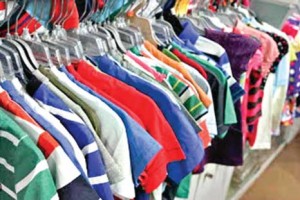Benar News 25 March 2022
Bangladeshi businesspeople are jittery about the future of bilateral trade with Russia, saying that international sanctions over Moscow’s invasion of Ukraine are disrupting their exports of key products such as ready-made garments.
Port authorities in other countries, for example, have started to offload containers filled with Bangladeshi-made apparel products or other export items bound for Russia, according to the president of a major trade group here.
“We export products amounting to nearly U.S. $700 million per year. The two-way trade is over U.S. $1 billion,” Md. Jashim Uddin, president of Federation of Bangladesh Chamber of Commerce and Industry, told BenarNews.
“The sanctions have disrupted the normal trade. Many port authorities dropped the Bangladeshi export items from the ships destined to Russia.”
Meanwhile, many international chains ordering Bangladesh-made apparel products for Russian customers have also cancelled orders, he said.
“Again, many international brands having shops in Russia used to order products from Bangladesh. They cancelled the orders as they shut the outlets in Russia after the sanctions,” he said.
Bangladesh mainly exports apparel, jute, frozen foods, tea, leather, home textiles and ceramic products to Russia. In exchange, Bangladesh imports Russian-made capital machinery, fresh and dried fruit and raw sugar, among other things.
Officials and business leaders in Bangladesh said that bilateral trade had been rising since the 2018-19 fiscal year.
Now “the western sanctions have made our trade with a flourishing market, Russia, difficult and uncertain,” said Rajiv Chowdhury, managing director of Young4Ever Textile.
“We are worried about it,” Chowdhury told BenarNews, adding that he had sent a consignment of apparel products to Russia, which sat idle at a port for three consecutive weeks. He declined to disclose which port for reasons of business confidentiality.
“Now my Russian buyer says they will receive the consignment through the Latvian port,” he said.
Bangladesh and Russia, meanwhile, enjoy a warm relationship in trade, investment and commerce.
Earlier this month, Bangladesh said it would carry on with completing its first nuclear energy plant being built by Russia and would not stop doing business with Moscow, despite the Russian invasion of Ukraine.
Russia is constructing and financing 90 percent of the total cost for the Rooppur Nuclear Power Plant (RNPP) in Pabna, a district in northwestern Bangladesh. In late 2017, the Russian state-run nuclear energy firm Rosatom began constructing the plant, which has a price-tag of about U.S. $13 billion, and is expected to finish it in mid-2023.
Bangladesh also was among a handful of U.N. member-states that abstained from a vote on a General Assembly resolution that condemned the invasion. A majority of member-states voted for the resolution.

